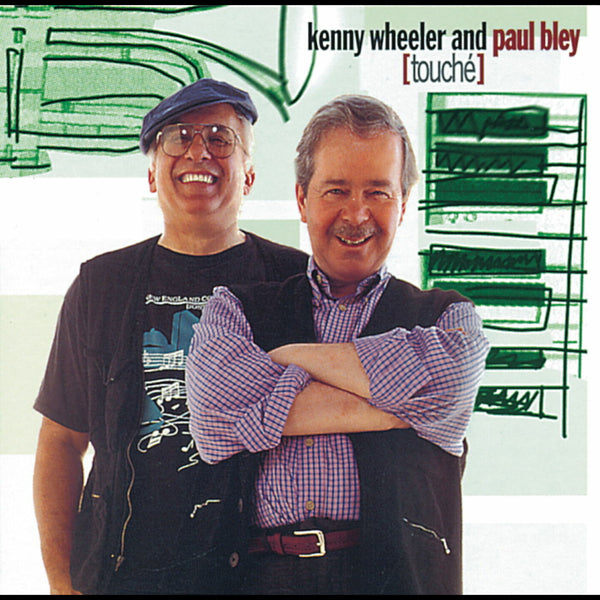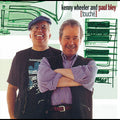
Release Date:
Downloads include choice of MP3, WAV, or FLAC
These two Canadians, Kenny Wheeler and Paul Bley, now in their sixties and at the height of their very considerable powers, are relatively unsung giants of jazz. Both are steeped in jazz history and have an immense knowledge of the music’s grammar and syntax, and both were also deeply involved in the free jazz (abstract) music of the 1960s. Both men have made invaluable contributions to jazz, pianist Bley with his emphasis on improvisation – his 1963 trio album Footloose was, incidentally, a powerful inspiration for the young Keith Jarrett – and Wheeler is not only a major trumpet stylist, but also one of the most original orchestral and small group composers with his own highly sophisticated harmonic language. This was the first time the two men had recorded together and they did so under the most rigorous and demanding conditions, which were suggested by Bley. Nothing was to be predetermined, there was to be no discussion whatsoever before each piece, and after each recording, he and Wheeler were to have a thirty-minute period of relaxation before they re-entered the studio to record the next totally improvised performance. In this way and on one day (19 July 1996) six duo performances were recorded, plus three solo trumpet or flugelhorn improvisations by Wheeler and four solo piano improvisations by Bley. The rapport between the two men is magical and the music has terrific variety, with subtle light and shade, at times it’s abstract and textural, but often harmonically based, and always shot through with profound human feeling. Wheeler and Bley are passionate improvisers, every note counts, you can sense them listening to each other, and each piece not only has its own clear identity, but also its own inevitability – because true improvisation is composition on the wing. Wheeler always uses the harmon mute with the trumpet which gives the proceedings a sardonic edge, but his open flugelhorn sound is ravishing, and Bley coaxes and sometimes coerces rich sonorities and a wonderful array of colours from the piano. I could not fault this delightful album of two masters at play with open hearts and minds. Classical-Music.com
Touché
Kenny Wheeler, Paul Bley
Downloads include choice of MP3, WAV, or FLAC
These two Canadians, Kenny Wheeler and Paul Bley, now in their sixties and at the height of their very considerable powers, are relatively unsung giants of jazz. Both are steeped in jazz history and have an immense knowledge of the music’s grammar and syntax, and both were also deeply involved in the free jazz (abstract) music of the 1960s. Both men have made invaluable contributions to jazz, pianist Bley with his emphasis on improvisation – his 1963 trio album Footloose was, incidentally, a powerful inspiration for the young Keith Jarrett – and Wheeler is not only a major trumpet stylist, but also one of the most original orchestral and small group composers with his own highly sophisticated harmonic language. This was the first time the two men had recorded together and they did so under the most rigorous and demanding conditions, which were suggested by Bley. Nothing was to be predetermined, there was to be no discussion whatsoever before each piece, and after each recording, he and Wheeler were to have a thirty-minute period of relaxation before they re-entered the studio to record the next totally improvised performance. In this way and on one day (19 July 1996) six duo performances were recorded, plus three solo trumpet or flugelhorn improvisations by Wheeler and four solo piano improvisations by Bley. The rapport between the two men is magical and the music has terrific variety, with subtle light and shade, at times it’s abstract and textural, but often harmonically based, and always shot through with profound human feeling. Wheeler and Bley are passionate improvisers, every note counts, you can sense them listening to each other, and each piece not only has its own clear identity, but also its own inevitability – because true improvisation is composition on the wing. Wheeler always uses the harmon mute with the trumpet which gives the proceedings a sardonic edge, but his open flugelhorn sound is ravishing, and Bley coaxes and sometimes coerces rich sonorities and a wonderful array of colours from the piano. I could not fault this delightful album of two masters at play with open hearts and minds. Classical-Music.com


